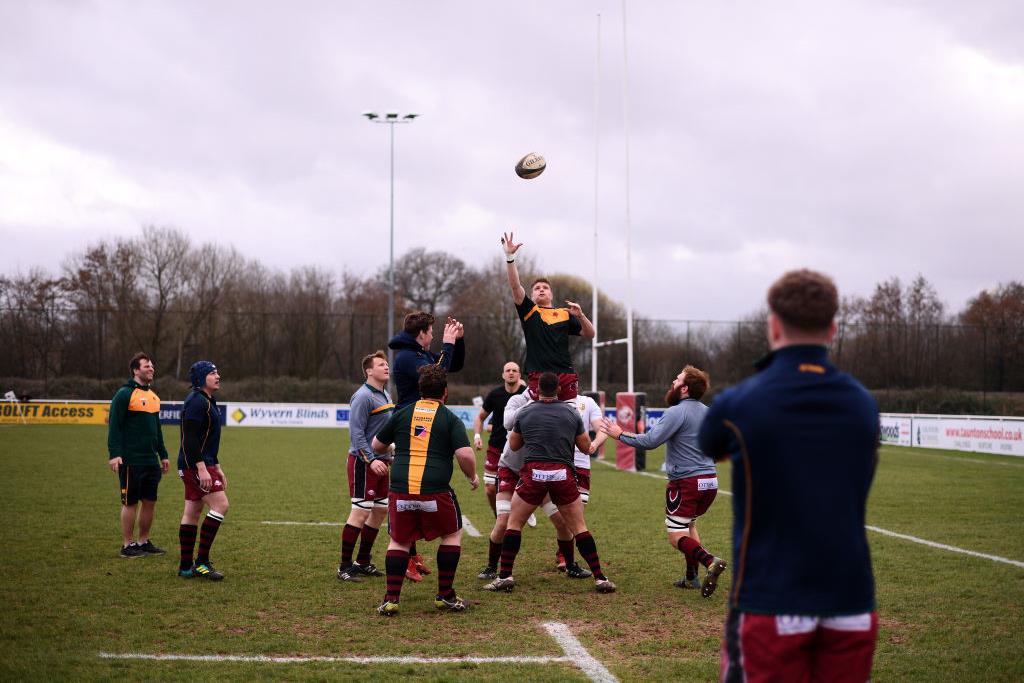RFU Council votes in significant format changes to National Leagues and below

TAUNTON, ENGLAND - MARCH 02: during the National League Two South match between Taunton Titans and Barnes at the Commsplus Stadium on March 02, 2019 in Taunton, England. (Photo by Harry Trump/Getty Images)
The RFU Council has voted to radically overhaul the format of the community game in a bid which aims to make the demands of rugby safer and stem the decline of participation numbers.
Hailed as a ‘landmark moment’, the outcome reached to make a host of changes to the National Leagues all the way down Level 12 comes after months of debate at the RFU, as clubs battle to survive being laid dormant by the Covid-19 pandemic.
Changes to the league structures for 2022-23 will see National League One, the league below the Championship, reduced from 16 to 14 clubs as will National League Two North and South.
For clubs Level 5 and below, leagues will be capped at 12 teams and have heightened emphasis on regionalisation. A step taken to cut travel costs and travel distance.
Rest periods will also be built into the new season structures for the first time. A National League club currently has a 30-game league campaign to finish, typically running from early September to late April.
But clubs will now be afford a two-week rest period over Christmas, with additional one-week breaks built in.
Plans put forth also include the introduction of a new National Cup knock-out competition to conclude the season, with a place in a final at Twickenham at stake.
The Future Competitions Structure Group was set up by the CGB to conduct the research and the group’s chair, Stephen Pearson, said: “We would like to thank everyone who has shared feedback around the impact the current competition structure is having on participation numbers.
“We have been able to use this period of consultation and evidence-gathering to create a blueprint for a new structure and are pleased that Council has voted overwhelmingly in favour of these proposals. Our fundamental goal is to deliver a competitions structure that works for today’s players and for the players of the future.
“Our recommendations reflect growing feedback from players that shorter bursts of intense rugby are preferable to a long, extended season. Players have reiterated they need breaks in the season and would prefer more localised fixtures. We believe that less intensity to the league system, with shorter travel times to and from games, are important features that today’s players want in their competition structure, to help fit within busy lives.
“By having breaks and shortening the league, space is created at Level 5 and below for an end of season knockout cup competition, which would guarantee clubs the home fixtures they lose from a shorter league season. Clubs would also get to play different teams at their same level and avoid repeating the same fixtures.
“Having both a league and a cup competition would create sustainable excitement for everyone at the end of the season, not just for those teams battling for promotion and relegation.”
Community Game Board chair David Roberts said: “These are the key parts of the agreement that we felt we needed to vote on at this stage and that have been approved by Council. It is an integrated package of measures, not a menu of options, that we believe players will find attractive and will want to participate in.
“By waiting until 2022/23 for full implementation, we have time to work through the precise details and it gives clubs time to return to rugby in a familiar structure in 2021/22, after the disruption of the pandemic.”
Stephen Pearson added: “At the February Council meeting, we will update on further work conducted. This will involve discussions around how flat the pyramid is, local competition, what the cup competition looks like specifically and whether we look to add second and third 15 teams to leagues nationally.
“The rationale for creating additional 15s teams is to help maintain the integrity of a more local competition. As you move to a smaller geographical footprint, there are less clubs at your level. Therefore, it might be better to play a second XV of a higher ranked club in your local area rather than travel a long way to play a team at your level.
“We will explore these areas in more detail in the coming months and a final vote will be taken by the RFU Council in April 2021.”